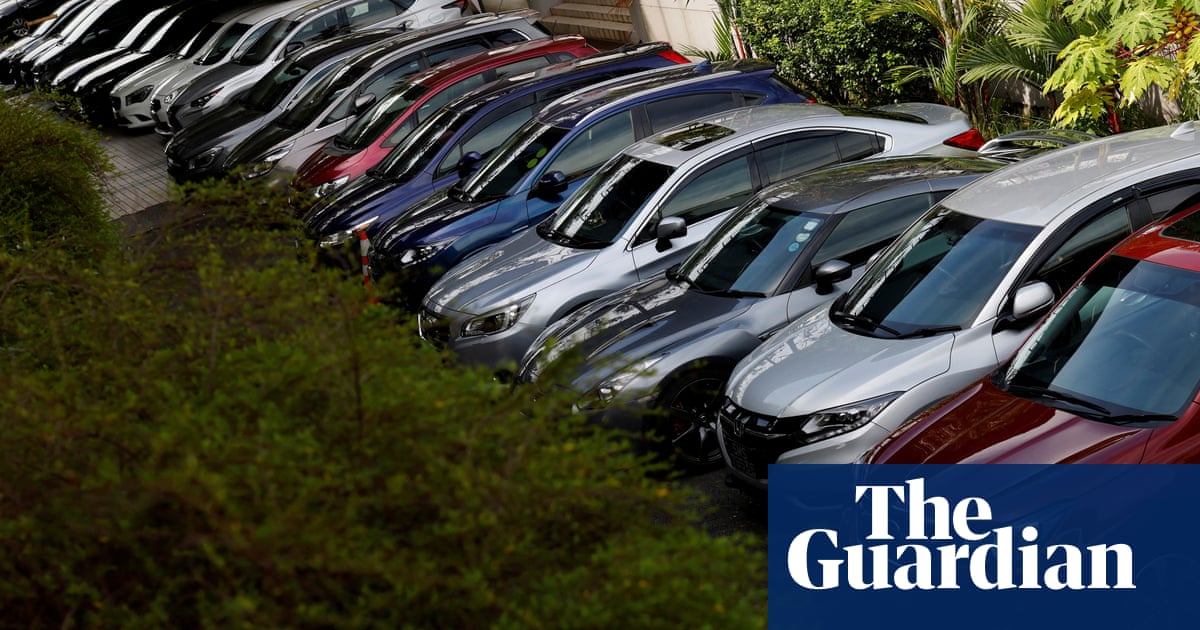- cross-posted to:
- [email protected]
- [email protected]
- cross-posted to:
- [email protected]
- [email protected]
this is a good thing, other countries should do it too
Upvote because you were at 0. I don’t think paying $100,000 for the ability to drive a car is a good system.
Car dependency is better fixed by better city planning.
Singapore has pretty good city planning. But you still need a way to disincentivize car ownership, otherwise you end up with overloaded roads anyway.
Other countries like Singapore, sure. Countries where you’ve got to go 20-25 km just to buy basic groceries, fuck no.
bad transit planning
20km for groceries is not bad transit planning it’s called living in the middle of fucking nowhere. It’s completely irrelevant to any discussion related to urban planning and car dependency.
Smfh
did you really think I was referring to rural areas lmfao
I mean, yeah? I did. Because what non-rural areas require going 20-25km for groceries by car?
bad suburbs
Name one place so poorly planned, everyone within a 20km/13 mile radius all share a grocery store because that’s the closest one - while still being considered urban. I’ll even let you get away with sub-urban.
go 20-25 km just to buy basic groceries
Homie what the fuck. What percentage of people living in first world countries do you think this applies to?
In Germany, Austria and Italy? A lot. I’d say at least 40%.
20-25 km to buy groceries means there should be public transport available to get you there. Or it means that your villages and cities are shittily built to not have neccessities within walking distance.
And in the countries where there is no such public transport, they still shouldn’t implement such a law until they get their public transport in order.
So they won’t implement such law ever because nobody will go for public transport. Instead they’ll add “one more lane”
Has nothing to do with shittily built, public transport for 5 people that’s available around the clock isn’t something that’s even remotely feasible, nor is it economical.
Apart from that, if you think like that, you’re part of the problem. Where do you think the groceries will come from in the future? From farmers that go about with public transport?
Yeah it is remotely feasible to setup public transport like that.
Did you really think this up? 😂😂😂😂😂😂😂
Nobody advocating for reduced car dependency and public transportation want to force farmers or rural people to sell their cars and take the bus. This argument is so fucking stupid and so fucking tiresome.
It’s being implied every single time this topic comes up.
I lived in Singapore without a car, there is no need to own a car. I used public transport and ride sharing without ever feeling that having a car would have improved my experience. In Hong Kong it was the same, and I lived in the Northern Territories, however in Sydney we had a car even though public transport was great, because its a big fucking country. Now in Penang, Malaysia there is no usable public transport, so a car is absolutely essential.
I’m disabled and live among farms with no immediate public transport… I don’t think other countries should try this. If I couldn’t afford a car, I wouldn’t be able to go anywhere.
Obviously this is only for urban areas
Gotta love people pulling one in a million (and in this case completely irrelevant) exceptions out of their ass as a reason to argue in favour of car infrastructure.
But I live in rural North Dakota!! Why should I be punished for needing a truck??!?!!!1!1!!
This is Singapore, one of the most urban and built up areas on earth. You’re comparing oranges and bricks.
do you pay $100k to get a liscense or do you just have to have that much in your bank account or credit?
You need to pay. It is a bidding, as mentioned in the first paragraph.
Equating a city-state with the rest of the world is silly and impractical.
And you don’t have to be a car freak to know what this means for your freedom of movement if your government has this much control over the modes of transportation.
This is the best summary I could come up with:
Singapore has a 10-year “certificate of entitlement” (COE) system, introduced in 1990, to control the number of vehicles in the small city-state, which is home to 5.9 million people and can be driven across in less than an hour.
Including COE, registration fees and taxes, a new standard Toyota Camry Hybrid currently costs S$251,388 ($183,000) in Singapore, compared with $28,855 in the US.
In 2020, when fewer people in Singapore were driving, the price of COEs dropped to about S$30,000; a post-Covid increase in economic activity has led to more car purchases while the total number of vehicles on the road is capped at about 950,000.
The rocketing price puts cars firmly out of reach of most middle-income Singaporeans, putting a dent in what sociologist Tan Ern Ser said was the “Singapore dream” of upward social mobility – having cash, a condominium and a car.
Singaporeans have been hit by persistent inflation and a slowing economy, and some are selling the cars they bought when certificate prices were low to make a profit.
Jason Guan, 40, an insurance agent and father of two, said he bought his first car, a Toyota Rush, for S$65,000 in 2008, including the price of the COE.
The original article contains 389 words, the summary contains 202 words. Saved 48%. I’m a bot and I’m open source!
I’ve never heard a more perfect term than “Certificate of Entitlement.”
That did, Singapore has one of the most well developed mass transit systems in the world, so if there’s anywhere you can live without a car…
deleted by creator
Singapore is still the size of Singapore, so it’s a win for Singapore. Why wouldn’t it be? As long as Singapore is still the size it is, it literally doesn’t matter how it compares to any US county.
Singapore is known for it’s low crime rate. Corporal punishment is widely accepted. Caning is used not only to punish criminals but also as a disciplinary measure in schools, the military, and domestically. You can find rattan canes for sale in the grocery store for about 50 cents.
Yeah, but what relevance does that have about car prices?
If you let the car rot, you get the stick
When the CoE gets so high you opt for caning instead /shrug
that price is too high! /s
I would have thought lemmy wont root for gaining privileges with more cash.
Cars have a societal cost that is far greater than the car-related taxes paid by car owners. Aka car owners are subsidized by non car owners. Not saying Singapore has a fair system but people drastically underestimate how expensive cars infrastructure is for society.
lemmy does root for reduced car dependence tho :)
Anti-rich resentment is a good contender though. Their brain might explode at some point, when they realise that these limitations only apply to them, who never actually made most of the pollution happen.









